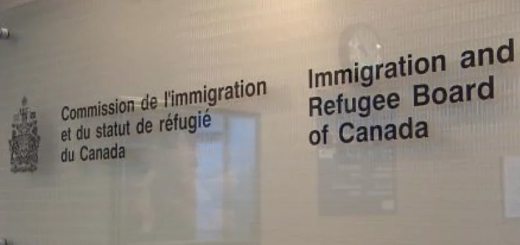APPEAL WATCH: Sweet Productions Inc. v Licensing IP International on Delay and Dismissal

The Supreme Court of Canada (“SCC”) is set to hear an appeal out of the Federal Court of Appeal (“FCA”) on undue delay leading to dismissal in the case of Sweet Productions Inc. v Licensing IP International, 2022 FCA 111 [Sweet Productions] pursuant to Rule 167 of the Federal Court Rules, S.O.R./98-106 (“the Rules”).
Facts
Sweet Productions, the appellants, filed an action for copyright infringement in respect of cinematographic works appearing on Licensing IP International, the respondents’, websites. The respondents made a request for particulars on September 23, 2019, which was met with a partial response on September 30, 2019 and a full response on October 21, 2019. The appellants’ filed an amended statement of claim on February 13, 2020 (Sweet Productions, para 5).
On March 11, 2020, the respondents submitted a new demand for particulars, mentioning that they would move to strike if the requested information was not received by March 25, 2020 (Sweet Productions, para 6). The Federal Court then suspended the running of time in relation to deadlines imposed by the Rules in response to the COVID-19 pandemic (Sweet Productions, para 7). On May 11, 2020, not having heard from the appellants, the respondents filed a motion to dismiss for delay. On June 4, 2020, more than two months after the deadline, the appellants provided the particulars requested by the respondents and undertook to provide a further amended statement of claim ultimately filed on June 16, 2020 (Sweet Productions, para 8). The respondents also filed a motion for leave to file reply evidence (Sweet Productions, para 9). On October 16, 2020, the Prothonotary – a judicial officers of the FC with jurisdiction over a number of procedural and substantive issues – dismissed the respondent’s motion for leave but granted the motion to dismiss in part (Sweet Productions, para 9).
Specifically, with respect to the leave motion, the Prothonotary found that the evidence was not particularly useful, and so the interest of justice did not warrant granting leave (Sweet Productions, para 10).
With respect to the dismissal motion, the Prothonotary found that the three-part test for undue delay, as set out in Rule 167, was met (Sweet Productions, para 12). Rule 167 reads:
The Court may, at any time, on the motion of a party who is not in default of any requirement of these Rules, dismiss a proceeding or impose other sanctions on the ground that there has been undue delay by a plaintiff, applicant or appellant in prosecuting the proceeding.
To apply this provision, the court must be satisfied that a three-part test has been met, exploring whether: 1) there has been undue delay; 2) the delay is excusable; and 3) the respondents are likely to be seriously prejudiced by the delay (Sweet Productions, para 35). The Prothonotary found that Licensing IP International was never in default of the Rules, and that they had been justified in not serving their statement of defense until they received the particulars request (Sweet Productions, para 11). Next, she found that the respondents met the burden of demonstrating inordinate delay (Sweet Productions, para 11). Finally, the Prothonotary inferred that Licensing IP International suffered prejudice as a result of the delay (Sweet Productions, para 11). Since the requirements under Rule 167 were satisfied, the Prothonotary considered the appropriate sanctions and ruled that the case should proceed under case management. Notably, Sweet Productions opposed this finding, while Licensing IP International had put it forward as an alternative to dismiss (Sweet Productions, para 12).
Judicial History
Licensing IP International appealed the order of the Prothonotary to the Federal Court (“FC”). With respect to the motion for leave, the FC overturned the Prothonotary’s decision, finding that she failed to consider whether the reply affidavit was relevant when assessing the remedy for undue delay (Sweet Productions, para 13). With respect to the motion to dismiss, the FC found that the issue of undue delay was not properly before the FC, since Sweet Productions did not file a cross-appeal challenging the Prothonotary’s findings – the only issue before the court was therefore the remedy (Sweet Productions, para 14). Since the appellants did not signal a commitment to moving the proceeding forward at a reasonable pace, in particular because they did not present a litigation plan and opposed case management, the FC was not convinced that case management was an appropriate sanction. Instead, the FC dismissed the action for delay (Sweet Productions, para 19).
Issue
The issue on appeal relates to the proper remedy when undue delay has been found pursuant to Rule 167 of the Federal Court Rules. Specifically, the FCA sought clarification on whether undue delay triggers an automatic assumption of dismissal, or if dismissal is considered only as a remedy of last resort? (Sweet Productions, para 2)
Decision
The FCA began their decision by noting that the Prothonotary applied the correct legal principles in her consideration of both motions (Sweet Productions, para 22). They recognized the analysis they were tasked with was whether the FC erred in setting aside the Prothonotary’s decision because she failed to consider the relevance of the reply affidavit when issuing a remedy (Sweet Productions, para 23). In sum, given that there was no palpable and overriding error on the part of the Prothonotary, the FCA ruled that the FC erred in interfering with her decision not to consider the relevance of the reply affidavit. Thus, writing for a unanimous bench, De Montigny JA, would allow the appeal in part (Sweet Productions, para 3).
More specifically, with regards to the question of granting leave, the FCA reaffirmed the Rule 167 framework addressed by the Prothonotary. De Montigny JA agreed with the Prothonotary that the reply affidavit was irrelevant to the question of undue delay (Sweet Productions, para 31). However, the Court found that such evidence is important in addressing the third inquiry under Rule 167, specifically, for addressing post-motion conduct: a plaintiff who resolves the delay shortly after a Rule 167 motion is filed is in a better position than a plaintiff who continues to delay (Sweet Productions, para 31-32). In this aspect, De Montigny JA disagreed with how the Prothonotary assessed the affidavit with regards to the leave motion, but found that such an error did not affect her choice of remedy, and thus, the FC erred in interfering absent a palpable and overriding error in her finding of remedy (Sweet Productions, para 34).
With regards to the motion to dismiss for undue delay, the FCA again agrees with the Prothonotary’s framework for determining whether a proceeding should be dismissed for delay. Sweet Productions does not challenge the Prothonotary’s finding of undue delay under this framework, but rather, the FC’s presumption of dismissal (Sweet Productions, para 35). De Montigny JA agrees with this view, finding that the FC’s interpretation of Rule 167 – which presumes dismissal when undue delay has been found – does not align with the text, context, and purpose of the rule (Sweet Productions, para 39). The purpose of allowing dismissal in Rule 167 is to signal to judges how far courts can go in addressing and remedying a case of undue delay, not to prevent them from exploring lesser sanctions (Sweet Productions, para 39). As such, the FCA found that the FC erred in finding that a presumption of dismissal applies if undue delay is found (Sweet Productions, para 45).
Analysis
Sweet Productions is the next case in which the SCC is set to address the issue of delays. Following R v Jordan, 2016 SCC 27, and particularly after the COVID-19 pandemic, delays across the justice system have been widespread. Approaches on how to solve such a problem vary greatly, from the Federal Court calling on the Prime Minister and his Cabinet to fill judicial vacancies within a reasonable time, to the Ontario Superior Court fashioning proportionate procedures to appoint independent accountants to move proceedings along.
This decision, at both the FC and FCA level explored the application of the SCC’s decision in Hryniak v Mauldin, 2014 SCC 7 [Hryniak], in which the SCC found that “a culture shift is required in order to create an environment promoting timely and affordable access to the civil justice system” (Hryniak, para 2). Such a shift will include wide adoption of the proportionality principle, which “means that the best forum for resolving a dispute is not always that with the most painstaking procedure” (Hryniak, para 28). I suspect that the SCC will uphold the FCA’s decision which permitted the Prothonotary’s remedy of case management, as that is the outcome that best aligns with the proportionality principle in providing for efficient adjudication. Such a decision will signal to all courts that post-Hryniak, the focus should be on adjudication, not dismissals without engaging in full inquiries. This would also go a long way to legitimize courts who fashion proportionate procedures in their delayed proceedings. In turn, this would lessen the law’s delay greatly.
Conclusion
In Sweet Productions Inc. v Licensing IP International, the FCA found that although the Prothonotary erred in not considering the reply affidavit when addressing the motion to leave, such an error was not so egregious as to rise to a palpable and overriding error (Sweet Productions, para 49). Specifically, the FCA found that such an error did not detract from the Prothonotary’s choice of remedy–namely, her choice to place the proceeding under case management rather than dismissing it–especially in contrast to the FC’s presumption of dismissal (Sweet Productions, para 52). The SCC, in addressing such an application and reading of Rule 167, will signal to courts the amount of discretion available in tackling delays.
This article was edited by Farah Abdel Haleem.








Join the conversation